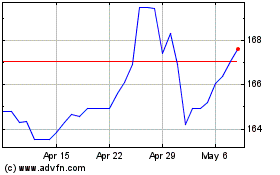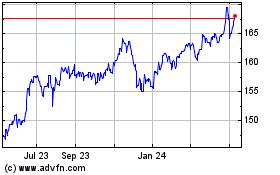Euro Slides On Trump's Tariff Threats
19 February 2025 - 6:34PM
RTTF2
The euro weakened against other major currencies in the European
session on Wednesday amid fears of fresh tariffs by the U.S.
President Donald Trump spoke about the possibility of a 25% levy on
imports of automobile, semiconductors and pharma products from
April, weigh on sentiment.
Trump, continuing with his aggressive stance on trade,
reiterated that U.S. will charge reciprocal tariff to trading
partners which would be 'no more, no less' levied by other
countries.
World markets renewed the focus on monetary policy ahead of the
release of the minutes of the latest Federal Open Markets
Committee.
In economic news, data from the European Central Bank showed
that the euro area current account surplus increased to a six-month
high in December. The current account balance showed a surplus of
EUR 38 billion in December compared to a surplus of EUR 25 billion
in November. This was the highest surplus since June.
The surplus on goods trade fell to EUR 33 billion from EUR 35
billion. Meanwhile, the surplus on services increased to EUR 18
billion from EUR 11 billion.
In an interview with the Financial Times (FT), ECB executive
board member Isabel Schnabel stated that, in contrast to market
expectations, she anticipates the central bank will declare a
"halt" in the monetary expansion cycle because inflation risks have
"skewed to the upside" and borrowing costs have significantly
decreased. Schnabel cautioned that despite "new shocks to energy
prices," wage growth was "still elevated" and domestic inflation
was "still high."
In the European trading today, the euro fell to a 6-day low of
1.0424 against the U.S. dollar, a 1-week low of 158.12 against the
yen and more than a 1-1/2-month low of 0.8273 against the pound,
from early highs of 1.0462, 159.13 and 0.8289, respectively. If the
euro extends its downtrend, it is likely to find support around
1.02 against the greenback, 155.00 against the yen and 0.80 against
the pound.
The euro edged down to 0.9432 against the Swiss franc, from an
early 5-day high of 0.9445. On the downside, 0.93 is seen as the
next support level for the euro.
Moving away from an early 5-day high of 1.8395 against the NZ
dollar, the euro slid to a 9-day low of 1.8216. The euro may test
support near the 1.79 region.
Against the Australia and the Canadian dollars, the euro slipped
to an 8-day low of 1.6402 and a 6-day low of 1.4802 from early
highs of 1.6465 and 1.4833, respectively. The kiwi is likely to
find support near 1.62 against the aussie and 1.47 against the
loonie.
Looking ahead, U.S. MBA mortgage approvals data, U.S. building
permits and housing starts, both for January and U.S. Redbook
report are slated for release in the New York session.
At 2:00 pm ET, the Federal Open Market Committee (FOMC) meeting
minutes of its latest monetary policy meeting held on January
28-29, 2025, where the interest rates were kept unchanged at 4.25
percent to 4.5 percent.
Euro vs Yen (FX:EURJPY)
Forex Chart
From Jan 2025 to Feb 2025

Euro vs Yen (FX:EURJPY)
Forex Chart
From Feb 2024 to Feb 2025
